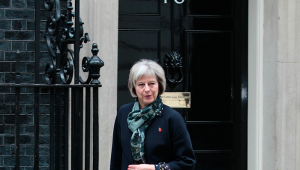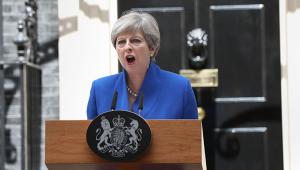She is due to admit England has “one of the most expensive systems of university tuition in the world”, announcing the higher education funding review.
The prime minister is also expected to argue for an end to “outdated attitudes” that favour university over technical education.
The move comes after a treasury select committee report highlighted the inefficiencies in the student loan system.
It said the majority of people in receipt of student loans - for tuition fees, maintenance, or both - will not fully repay them.
In response to the news of the review the committee stated it “must be objective, widely framed, and empowered to bring about any changes deemed necessary, be they radical or otherwise.”
May’s speech is expected to criticise the cost of tuition fees, suggesting that “the level of fees charged do not relate to the cost or quality of the course”.
The prime minister will say: “The competitive market between universities, which the system of variable tuition fees envisaged, has simply not emerged.”
Indeed, a maximum of £9,250 per year is charged by “all but a handful of universities”, she will say.
The treasury select committee suggested that: “The aggregate outstanding student loan balance was £89bn at March 2017, with the Department for Education estimating that between 40% and 45% of the value of student loans will not be repaid.”
The review is also expected to assess other areas of post-18 education, such as vocational training, the standards of which May will suggest are too varied.
Under the coalition government, maximum university fees in the UK rose from £3,375 annually to £9,250.
In the run-up to the 2017 election, the Labour Party pledged to scrap tuition fees entirely in order to appeal to young voters.
The review is expected to publish its finding in early 2019.











